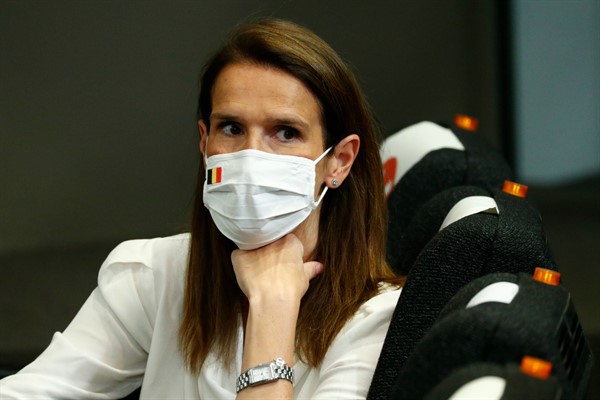BRUSSELS—In their responses to the coronavirus pandemic, some countries have channeled greater powers to their central governments in order to curb the virus’s spread, while others have left their states or regions to fend for themselves. The divergent responses have sparked debates in many countries about federalism and the appropriate role of the state.
Here in Belgium, a highly federalized nation whose main political parties have been unable to form a working coalition for more than a year, Parliament approved temporary expanded powers to the caretaker government to manage the coronavirus crisis. On the surface, this seemed like a surprisingly constructive move for the small European country, which has a history of divisive regional politics. Some Flemish party leaders, who have long advocated greater regional autonomy, have even suggested the pandemic creates the potential for more cooperation at the country’s federal level. A closer look, however, shows that Belgium’s divisions are as deep as ever—and that COVID-19 may have only exacerbated them.
Belgium’s federal system is complex, influenced by the centuries-long power struggle between French speakers in the south and Flemish Dutch speakers in the north. A small minority of German-speakers is concentrated in the east. During the 1970s and 1980s, the country began to form a federal system, redistributing rights and decision-making power in two layers: linguistic communities and geographic regions. The first layer guaranteed linguistic and cultural rights to speakers of each of the country’s three official languages: Dutch, French and German. These communities later took on powers relating to health and social services. The second layer granted autonomy on economic and commercial issues to three regions: Flanders in the north and Wallonia in the south, with the Brussels capital region in the middle.

